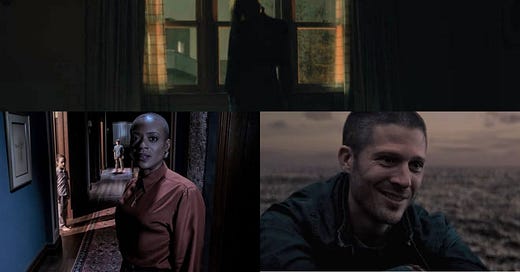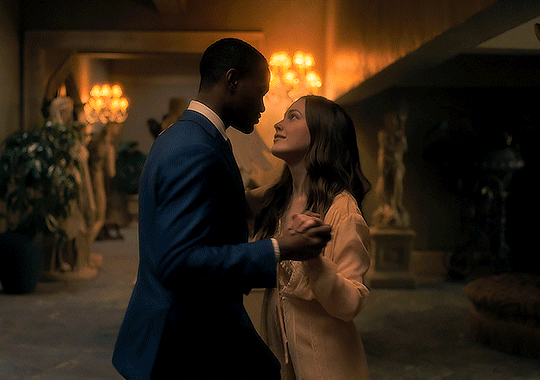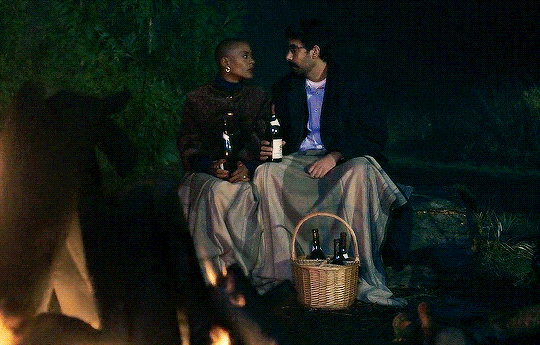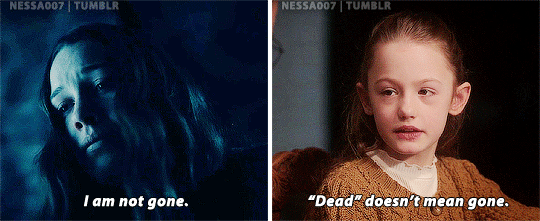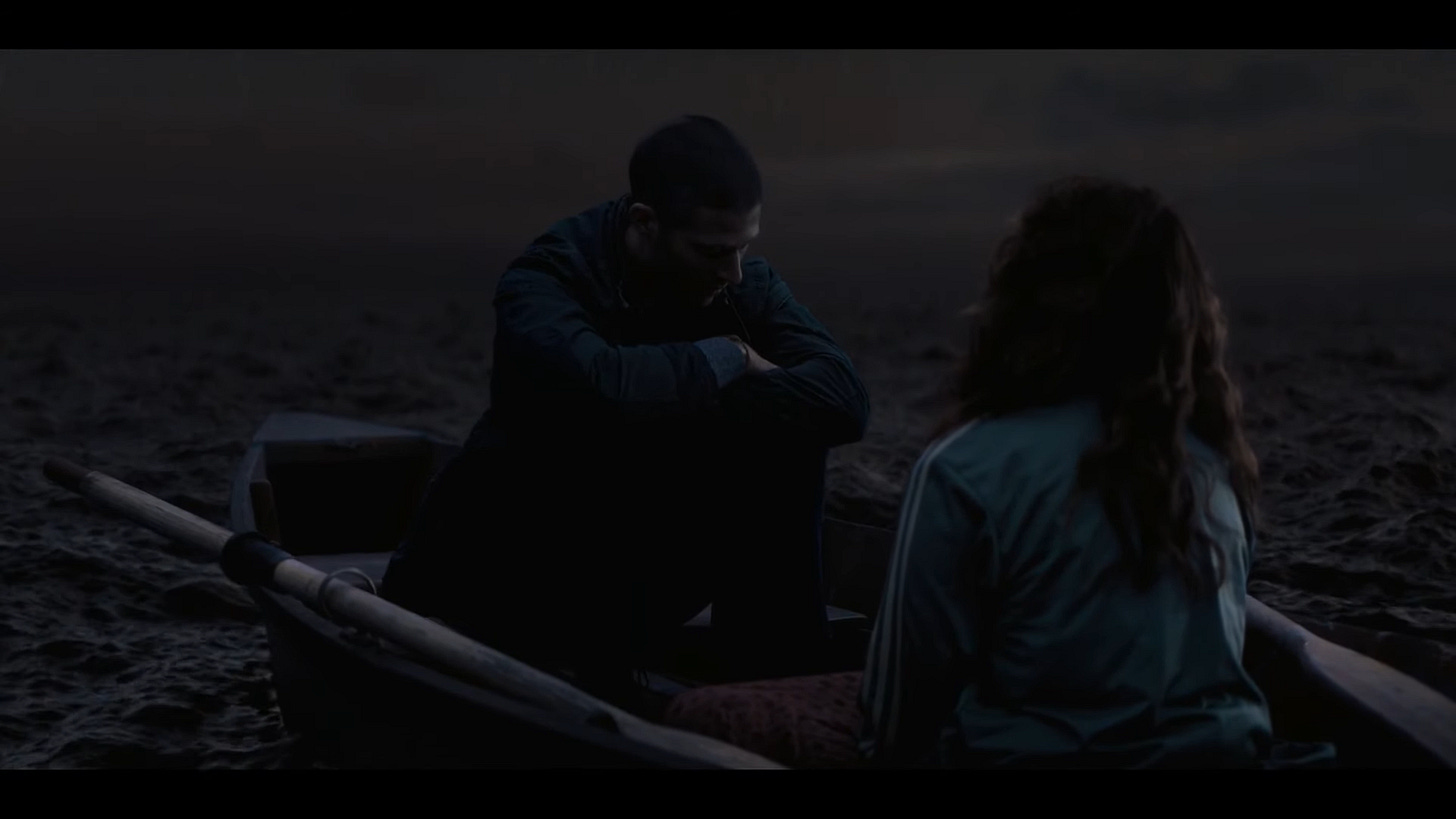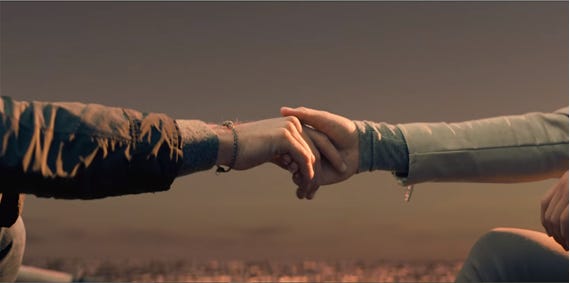The Carcass of the Self: Grief, Memory and Faith in the Universe of Mike Flanagan
Inside the fifth episode(s) — the magnetic centerpieces of The Haunting of Hill House, Haunting of Bly Manor and Midnight Mass
Television has always yielded as a superior vehicle of longform storytelling - from the depths of character building to the translation of the written word into a visual treat that breathes new life into the vision of writers, episode after episode. By the virtue of coming to us straight in our homes, television episodes are simultaneously viewed as an exercise in familiarity - generous in its comfort and warmth, and also a massive event that you get to experience with the rest of the world.
It is no surprise then, that often, television creators and writers have transformed particular episodes into a tradition per season, or attached a very specific significance to certain numbered episodes in every installment of the show. Think of the Thanksgiving episodes of This is Us — an important celebration for the Pearson family weaved across generations and decades, which also has a significant impact on the story that followed. Game of Thrones famously dedicated their penultimate episode of every season to a War — narrative turns and spectacles in equal measure. Sitcoms have their own traditions — Brooklyn 99 did a heist episode every season, fans of Friends still swear by the annual Thanksgiving episodes, and 30 Rock poked fun at Liz with the Valentine's Day episodes. It's clear that these traditions are narrative devices, but also serve as important world building exercises, replete with a peek into popular culture for viewers around the world.
In this particular article, I write about Mike Flanagan's three shows on Netflix - The Haunting of Hill House (2018), The Haunting of Bly Manor (2020), and Midnight Mass (2021). These shows, despite being miniseries of their own, with no relation to each other in terms of plot and characters, share a larger spiritual universe in the way they contend with grief, death, love and relationships, intergenerational trauma, and healing. Specifically, I write about the episode that I think forms the magnetic centerpiece, and the heart of these three shows - Episode Five of each installment. Think of them as Taylor Swift's famous Track Five on each album — very vulnerable, honest, and emotional, in her own words. I see each fifth episode as a game changer akin to a third eye opening, explaining to us what happens behind-the-scenes that led us to where we are at the point in the show.
It would be remiss of me to dive into the storytelling of these episodes without talking about Mike Flanagan and his filmmaking. A consummate creator of some of the best offerings of the horror genre in the past decade - Flanagan uses his stories to explore the formative grief of loss, and how it continues to haunt you as you age. On being asked about his intrigue for horror, Flanagan relayed, "I think horror exists as a genre because it's where we take our first shared emotions. We all learn how to be scared before we learn almost anything else. Horror lets us examine our fears in a safe space. I view the horror genre as opportunities for controlled bursts of courage." Just like him, I have always loved horror as a genre - it's potency to present difficult stories about trauma even more than that, so it's no wonder I fell headfirst in love with The Haunting of Hill House when I watched it for the first time as a 17 year old in January 2019. I knew then, as I know now, that I would carry it with me the rest of my life.
Much like The Haunting of Hill House, which is one of the greatest horror novels of all time, written by Shirley Jackson in 1959, Flanagan has adapted many renowned works of horror. This includes Turn of the Screw as well as many other short stories by Henry James, which find their way into The Haunting of Bly Manor. He has also adapted two of Stephen King's books - Doctor Sleep, the sequel to The Shining, as well as Gerald's Game, as feature films. Clearly, he has an eye for not only adapting these masterpieces to the screen, but also elevating them into the consciousness of a modern viewer. Another very significant part of his filmmaking, that will inform this article as well, is his recurring collaboration with several actors - Kate Siegal, Carla Gugino, Rahul Kohli, Victoria Pedretti, Oliver Jackson-Cohen, Henry Thomas and several others have featured in two or more of the television series discussed here. He also teams up regularly with cinematographers Michael Fimognari and James Kniest, as well as the composer duo The Newton Brothers.
The following part of the article is divided into three sections - each focusing on the fifth episode of each show. Even if you haven't seen all three shows, you'll be able to read the section of the show you have seen. Obviously, spoilers ahead!
1.The Haunting of Hill House Episode V - ‘The Bent Neck Lady’
"It's nice to be listened to"
The first time we see Nell as an adult in this episode, she's talking to a sleep technologist about her history of sleep paralysis. In a conversation muffled with romantic interest (he is her eventual husband) and generous empathy - she tells the man about being tormented for years, and never being taken seriously. "The last doctor I went to said I should stop watching TV before bedtime.. it's just nice to be listened to."
So far, we have seen Nell only from the point of view of her siblings in the episodes devoted to them - by the time we arrive at the fifth episode, titled ‘The Bent Neck Lady’, we already know that the titular lady's apparitions has haunted Nell since she was six years old. We also know that she died at Hill House, and before that, she had been struggling with grief and depression because of the loss of her husband. We know her earliest days and her last days from her siblings' eyes.
In an episode interspersed with non linear storytelling - a Flanagan trademark - we explore Nells's childhood at Hill House and her adult life in the present day. We get to see the emotional turmoil, and breakdown of every key relationship of her life - unimaginable loss and loneliness that torments her. I have been in awe of the storytelling of this particular episode for more than three years now, but it is hard for me to revisit because of my own lived experiences with depression. The suffocating isolation of mental illness, how it chips away at every lovely memory you have - and permeates it with an anticipation of wronghood is so devastating in itself. Victoria Pedretti, as Nell (her first job after she finished drama school, by the way); is so potent in conveying the slippery slope tension that envelopes her in her last few days. She woefully parallels her counterpart in the book - Eleanor Vance - who was afflicted with the experience of paranormal events that others in her life were oblivious to.
In a breakthrough in her therapy session with Dr. Montague (Flanagan’s version of wink, wink for the fans of the legendary book) - Nell decides to take his advice on confronting her demons at Hill House quite literally. A heartbreaking montage follows - of her loved ones apologizing, caring and exclaiming their adoration for her. She is loved. She is forgiven. She is reunited with her late husband, and dances in the graveyard of a home that consumed so many.
When the spirit of her mother, Olivia, beckons her to accept a necklace she was promised as a child - of course she accepts it. The necklace being a noose is such a damning depiction of intergenerational trauma - Olivia and Nell, haunted by the same woes that claimed their life. Just this imagery of the mother-daughter relationship is hard to digest, and yet the actual game changer of the episode does not arrive until the last few minutes. In a life-flashing-before-your-eyes montage, Nell relives every moment of being afraid of the Bent Neck Lady - but she is the one haunting her this time. The apparition that tormented Nell all her life is no one but her own dead self.

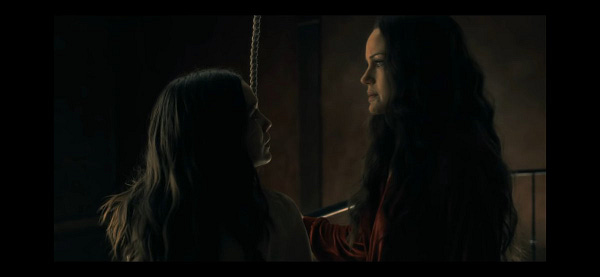

Writing this out was as brutal as watching it was, and yet I experienced a feeling of being understood - felt an echo of mental illness represented in a way they most certainly did not in popular media. The astonishing writing of this particular episode is symbolic of the reverberations of mental illness - the horror of it, the cruelty of loneliness and being estranged from your loved ones. Watching Nell, finally understanding her story in the fifth episode was the key to understanding this show, and Flanagan’s artistic vision. His version of this tale dived deep into Nell’s life, respected her enough to voice her inner battles, and honored her memory with a gentleness that we continued to explore in the later episodes.
2. The Haunting of Bly Manor Episode V - ‘The Altar of the Dead’
‘We can't count on the past'
In a departure from the previous four episodes, which followed the journey of Victoria Pedretti's character, Dani Clayton, we finally get a bird's eye view into the past of Bly Manor, through the mind (and memories) of the housekeeper, Hannah Grose. The beginning of this episode coincides with the end of the fourth one - Hannah and Owen sharing a bottle of wine and dreams of a future together in Paris, with a bonfire to keep them warm. Like The Haunting of Hill House, this show excelled at showing narratives from different perspectives, and in the process, gave way to solving the jigsaw that was the story.
'The Altar of the Dead' is also the name of a short story by Henry James. While officially the show is based on the Turn of the Screw, each episode simultaneously borrows, and is a tribute to the mythology of James' work - several of his short stories are referenced.
Non-linear storytelling reigns here as well. We move through Hannah's disjointed memories as she flashes back to her relationships and several key incidents that took place in the household she called her own. Throughout the episode, Hannah sees a distinctive crack in the walls - a pattern that follows her in every memory. During her first meeting with Owen, she interviews him for the post of the Chef, and they talk about their life - a long conversation, not unlike what Nietzsche spoke about when he talked about marriage. The conversation stretches for the whole episode, splintered into abrupt beginnings and endings - in one of those scenes, Owen relays Thomas Merton, ''Once we get past consciousness and identity and all of the things that occupy the front of our brains, you reach a transcendence, an infinitely abundant source."
From Hannah's meandering eyes, we get to know about the end of her marriage, the Wingrave family, the employment and burgeoning relationship of Rebecca and Peter Quint, and Hannah witnessing Peter stealing the family heirlooms. In one of these trances, Hannah crosses over to someone else's memory and is an audience to the death of Peter at the hands of the nameless 'Lady of the Lake' - the faceless, white clad ghost who haunts Bly. As she's having another one of those splintered conversations with Owen, Hannah talks about having the strangest dream (the exact same words used by Olivia Crain in Hill House) - so strange, they're like someone else's. Owen, the figment of her consciousness that is alive and honest - grabs her and gives a foreboding warning about Miles. We finally move to the day Dani arrives at Bly, to mere moments before she meets Hannah. She finds Miles in the company of the delinquent Peter Quint, who's been missing so far, and is a threat to the children's safety. In a fit of anger, Miles, possessed by Peter's spirit, pushes Hannah to her death down the well. With a broken neck, akin to Nell Crain. Her final sight is that of the wall cracks in the well. The ghost of Hannah, unaware that she's dead, looks on in the well, unable to understand what's wrong, but haunted by the unmistaken familiarity of loss, something which follows her as we get to know her in the first four episodes.
Memory plays a huge role in this episode, show, and Flanagan's canon in general. Owen talks about his mother's dementia, and the cruelty of the disease that distances her from people who love her. Being trapped in our memories feels excruciating - they fade, or can be wrong. They aren't unlike the 'glue trap of a town', or the house that forbids people who die to leave it. Not unlike Nell Crain, who was doomed to be the one who haunted her younger self, Hannah is also caught unaware in this cycle of life, death, and memory. She doesn't know where it begins and ends. Both Hill House and Bly Manor function as black holes, consuming these two women like they'd consumed countless others.
The episode ends with the same scene it started on - Hannah consents, happily, to traveling with Owen to Paris. "Eat croissants and drink good wine. And live, Hannah." Owen departs with Jamie, after a promise (and pun) of calling later - Hannah tries to follow them, but can't.
The tale isn't of tragedy, though. As an older Flora tells Hannah in the end - this is not a ghost story, it's a love story. There is so much that reverberates across this story and that of the Crain's - and what Nell says to her siblings in the end - there is no without, I'm not gone..
3. Midnight Mass ‘Book V: Gospel’
"I'm not scared, not of you. My dear, dear you."
In June, on the heels of the abolishment of Roe vs Wade - Midnight Mass started trending on Twitter. Nobody knew why exactly, but there was clearly a literal shitstorm brewing in real life that unnervingly paralleled the show - which is about an isolated island community that experiences miraculous and frightening events after the arrival of a new, young priest. Just like Hill House and Bly Manor, Crockett Island is torn from the world — the asphyxiation of isolation clogging it up. "Look at us, back where we started. The one place we swore we'd never end up", Erin jokingly tells Riley.
In the fourth episode, we get to know that Erin's fetus has mysteriously disappeared from her uterus — Sarah Gunning, the island doctor, concludes that she's miscarried. In spite of getting a second opinion from a doctor in the mainland, Erin cannot find answers for her unborn baby's sudden disappearance and is devastated beyond words. It is clear to the audience that the answer lies in the blood mixed in communion that Father Paul is offering to the congregation. Erin is robbed of the chance to have her baby — an action taken on her body against her will, in the name of religion and megalomaniacs — an overwhelming reflection of what we deal with in the world right now.
Midnight Mass is a lot of things — yes it is about addiction, grief, religious fanaticism and faith; Mike Flanagan called it the show that turned out to be the best as he had envisioned; it is an echo of Salem's Lot by one of Stephen King's most prolific collaborators — but more than that, its triumph lies in its depiction of the spectrum of human experiences.
And that is why, it is fitting that we see the world of the show foremost through the eyes of Riley Flynn - a man who is a shell of himself after he returns to his native Crockett Island after spending years in prison for killing a teenage girl in a drunk driving accident. Every night, he comes face to face with the girl who died because of his callousness and addiction — he clearly doesn't think of himself as worthy of forgiveness. A former alter boy, he holds deep contempt for a God that would allow (and facilitate through His godmen) — such evil in the world. He is mirrored by Father Paul, who sits beside him in AA meetings at the town rec centre. It's through these long, winding conversations between them, that we explore the heart of the show and what all it seeks to lay on the table.
In their last conversation, in the fifth episode, the serenity prayer is reverberated by Paul — "God grant me the serenity to accept the things I cannot change, courage to change the things I can, and wisdom to know the difference." After the events of the fourth episode, Riley finds himself with a broken neck, healing from death itself — as Father Paul nurses him back to life and urges him to talk to him, demanding unflinching honesty. He narrates Riley the story of him as an alter boy, who believed that the dying mouse he found was healed by Monsignor Pruitt — an act of God; when Pruitt simply euthanized the mouse and replaced it with a similar one. As they delve into their conflicting beliefs about religion and the harm it does, Paul confesses to being Pruitt, brought back to his 'peak', perfect self, thanks to the angel's blood. Paul further clarifies that he feels no guilt upon killing Joe. Riley is disgusted, and as someone who has been living with the suffocating guilt of having innocent blood on his hands — he admits that Paul feeling no guilt makes him jealous. It's also interesting how the show makes a clear parallel between Riley's alcoholism and the underlying nature of a vampire — the hunger to devour and consume someone else. Paul, in his belief that Riley's transformation is a sign that God has chosen him for redemption — persuades him to have courage, and let go of that guilt. They are interrupted by Bev, who makes disparaging comments towards Riley and rebukes him for not having faith in God's will for him. It is clear that she looks down upon Riley and doesn't find him worthy for God's 'miracle'.
Others are clearly worried about Riley though. As the town prepares for Good Friday, many are reported missing. A worried Erin files a Missing Person's Case for Riley, only to have him turn up on her doorstep at night. Although shaken, she's clearly relieved to see him, and per his request, they both take a rowboat to the middle of the ocean — a keepsake memory from their childhood. Erin urges Riley to let his guards down, and trust her enough to share whatever that is plaguing him. Finding power in his vulnerability, Riley narrates the events of the day.
Erin is admittedly spooked, and in disbelief, but she reiterates how much she cares for Riley, and the lengths she'll go to ensure he gets the help he needs. "I'd do that for you, without judgment and without fear." Riley is teary eyed, and exclaims he brought them out here not to scare her, but to ensure that he has nowhere else to go. He implores her to leave the island and never look back, but also knows in his heart that she would go back and do her best to save the folks on the island. "I did my best" — as the sun dawns to a new day, he tearfully bids Erin farewell, telling her how much he's loved her all his life — and hears it echoed back from her. The rays of the sun burn him to ashes, and in a microcosm of the afterlife, he meets the girl who died because of him. He takes her hand. He's finally at peace.
Much of the fifth episodes of The Haunting of Hill House, The Haunting of Bly Manor and Midnight Mass is about having the people at the center of it come to terms with their mortality and mistakes. Nell Crain, Hannah Grose and Riley Flynn are deeply imperfect people, who are also the product of their decisions and circumstances. Nevertheless, these shows are brilliant because they allow characters like them to come onto their own — unrestricted by death and the void it creates. Personally, I loved all these three shows for a variety of critical aspects they tackle, which are universal in nature. Wrestling with grief, loss, death and family is inexplicably cruel, but a fundamental part of life. All these shows are a triumph because they use the language of horror to underline the things and people we love and treasure. No life is wasted, no person is an afterthought. I keep thinking of Nell's words to her siblings in the finale of Hill House — I loved you completely. And you loved me the same. That's all. The rest is confetti. Love outlasts us all, even memory. It lingers in puns and rituals and touch and prayer and hope — hope to meet that love again someday.

